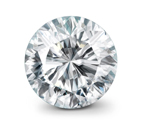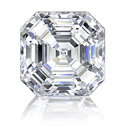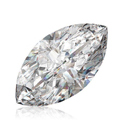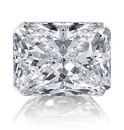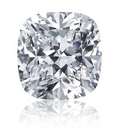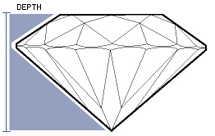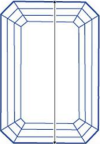ADVANCED SEARCH
The report certificates grade the diamond. For natural diamonds, the GIA certificate report is the gold standard. For lab grown diamonds, we recommend IGI.
Report
Why Are DreamStone Diamonds So Much Lower in Price?
The short answer: markup.
Most traditional jewelers inflate prices to cover high overhead, branding, and commissions. DreamStone takes a different approach—transparent pricing, minimal markups, and direct sourcing.
Our bell curve chart shows the difference: while competitors charge steep premiums, DreamStone keeps pricing honest, offering exceptional diamonds at fair prices.
How the Deal Score Works
The Deal Score helps you compare diamonds based on factors like shape, carat, cut, color, clarity, and certification. Our AI analyzes our entire inventory and assigns each diamond a Certified Dream Deal, Great Deal, Good Deal, or Fair Deal, so you can easily filter for the best value.
💎 Certified Dream Deal – Priced significantly lower than the market average
💎 Great Deal – Well below the average price
💎 Good Deal – Solid value for its specs
💎 Fair Deal – In line with the typical market price
Use the Deal Score as a guide, but remember—certain rare dimensions or ratios in shapes, like Oval, Emerald, and Radiant cuts, may command a premium due to unique proportions and brilliance. If a diamond fits your budget and personal preferences, it’s a great choice — even if it’s not the highest-rated Deal Score.
Deal Score
Fluorescence refers to whether or not a stone will produce a color reaction when exposed to long-wave ultraviolet (UV) light (such as the light that comes from black light). None and faint is considered more desirable for diamonds graded D through G, and medium and strong can make diamonds H color and lower look whiter.
Fluorescence
Polish
The symmetry of a diamond refers to the shape, placement and alignment of the facets. With poor symmetry the facets may have external imbalances that can misdirect light as it travels within the stone. Look for "Very good" and "Excellent" symmetry.
Symmetry
YOUR DREAM RING STARTS HERE:
DESIGN IT NOW, ENJOY IT FOREVER
-

START WITH A SETTING
Browse our settings and choose the style that is right for you
-

SELECT A DIAMOND
Choose the perfect diamond for your chosen setting
-

COMPLETE YOUR RING
Add the ring to your cart and start planning your proposal!

